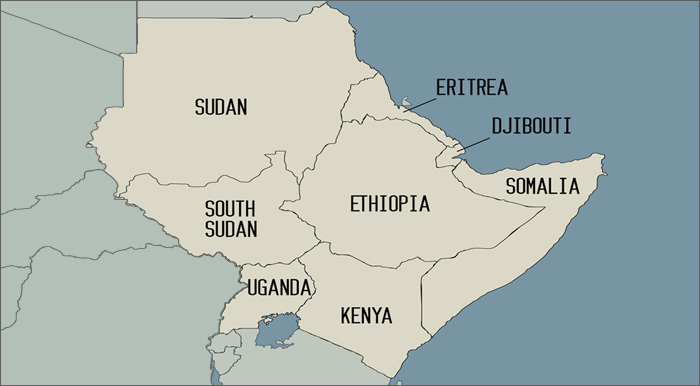 East Africa continues to be a region experiencing major challenges. In recent years, it has endured regular violent conflicts and steady transnational security threats. It is the only region in Africa where colonial era borders have been redrawn, adding to a sense of instability. Meanwhile, East Africa remains a place of great potential, marked by a burgeoning process of regional integration. Key to this process is the Intergovernmental Authority on Development (IGAD), a principal East African organization composed of Djibouti, Eritrea, Ethiopia, Kenya, Somalia, South Sudan, Sudan, and Uganda. This paper examines IGAD and its role in the maintenance of peace and security and economic integration in the region.
East Africa continues to be a region experiencing major challenges. In recent years, it has endured regular violent conflicts and steady transnational security threats. It is the only region in Africa where colonial era borders have been redrawn, adding to a sense of instability. Meanwhile, East Africa remains a place of great potential, marked by a burgeoning process of regional integration. Key to this process is the Intergovernmental Authority on Development (IGAD), a principal East African organization composed of Djibouti, Eritrea, Ethiopia, Kenya, Somalia, South Sudan, Sudan, and Uganda. This paper examines IGAD and its role in the maintenance of peace and security and economic integration in the region.
The report highlights the various structural and political challenges facing IGAD as well as the presence of economic and geographical conditions that can catalyze and enhance greater interdependence and cooperation among the region’s states. The report begins by identifying the characteristics and geopolitics of the IGAD region that affect integration, before it examines areas for engagement regarding security challenges, economic cooperation, and environmental protection. It concludes by noting some opportunities for future growth, such as the need for an independent dispute resolution mechanism and a proposed IGAD development bank.
About the author
Solomon Dersso is Head of the Peace and Security Council Report at the Addis Ababa office of the Institute for Security Studies.
About this series
This paper is part of the Mapping Multilateralism in Transition series, which features short briefing papers on established but evolving regional organizations and select crossregional organizations.
Others papers in this series
New Report Examines Role of the Union of South American Nations
New Paper Examines Role of the Shanghai Cooperation Organization
New Report Examines Nordic Cooperation in Multilateral Diplomacy







